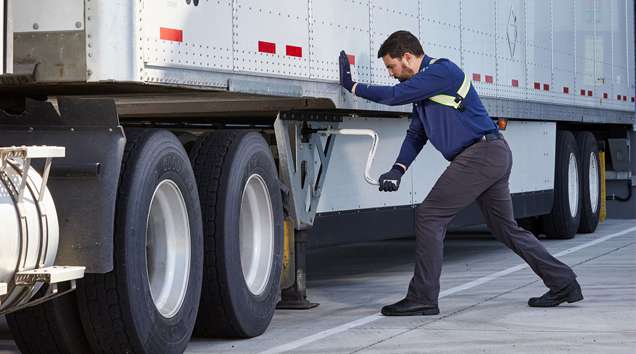The Culture Imperative: Focus on Retention Over Replacement

According to the latest data from the U.S. Bureau of Labor Statistics, there are 1.2 million more job openings than unemployed workers in the United States. Attracting and retaining qualified workers continues to be a top challenge for the transportation industry. To complicate matters, the average age of a commercial truck driver is 55 years old and many drivers are expected to retire out of the industry over the next two decades.
There has never been a more important time to invest in the wellbeing of your workforce. While many transportation providers have increased driver wages and offered lucrative signing bonuses over the past 12 months in an effort to recruit and retain talent, the real answer to increasing employee retention is more complicated than a pay hike.
A 2018 survey of 8,500 truck drivers found that pay ranked fourth in terms of trucker concerns behind people, equipment and logistics. The drivers’ biggest complaint category, “people issues,” spanned everything from a disconnect between office workers and driver duties to not feeling like they were part of a team-like environment.
In early 2018, Penske Logistics decided to make a strategic investment in associate wellness through a new program designed to reduce common musculoskeletal injuries. The program had two primary pillars:
- Preventing injuries by teaching associates the correct way in which to perform repetitive motions, like loading a box onto a shelf or unloading cargo from a tractor-trailer.
- Reinforcing Penske’s culture of safety by providing regular best practice reminders and ensuring that associates are safe and healthy in their workplace environments.
They partnered with San Francisco-based Worklete to deliver a program that not only taught their employees how to be safer at work, but provided a unified framework for their associates to learn relevant athletic principles, practice together on a regular basis, and engage in a common lexicon that could be customized and tailored to job-specific tasks.
"The operationally relevant courses make it real for the associates and focus the learnings to the areas of greatest risk within their operations,” said Jason Herr, vice president of safety for Penske Logistics in a recent Transport Topics webinar. “The techniques are another source of engagement and create a common ground for conversation between leaders and associates.”
“Worklete’s mobile platform allows associates from across the country to share in common language, terminology and movements,” Herr continued. “The strong safety culture is making an impact. Our associates are more often than before in a strong position, and when an injury does occur the impact is substantially less."
Engagement is a strong barometer for employee satisfaction and wellness, and 82% of Penske Logistics’ associates engage with the Worklete platform on a regular basis. As a result, they have also been able to cut costs related to Worklete preventable injuries in half.
The most qualified drivers and associates need to feel as if they are a valued member of a winning team. In order to attract and retain the best talent, companies need to invest in the education and camaraderie of their employees. The supply chain providers who emerge on top in the coming years will have met this new culture imperative.
Worklete partners with leading transportation, shipping and logistics companies to drive sustained injury prevention in frontline workforces. Its mobile-ready platform builds safe habits over time, strengthening safety culture while improving operational efficiency.


